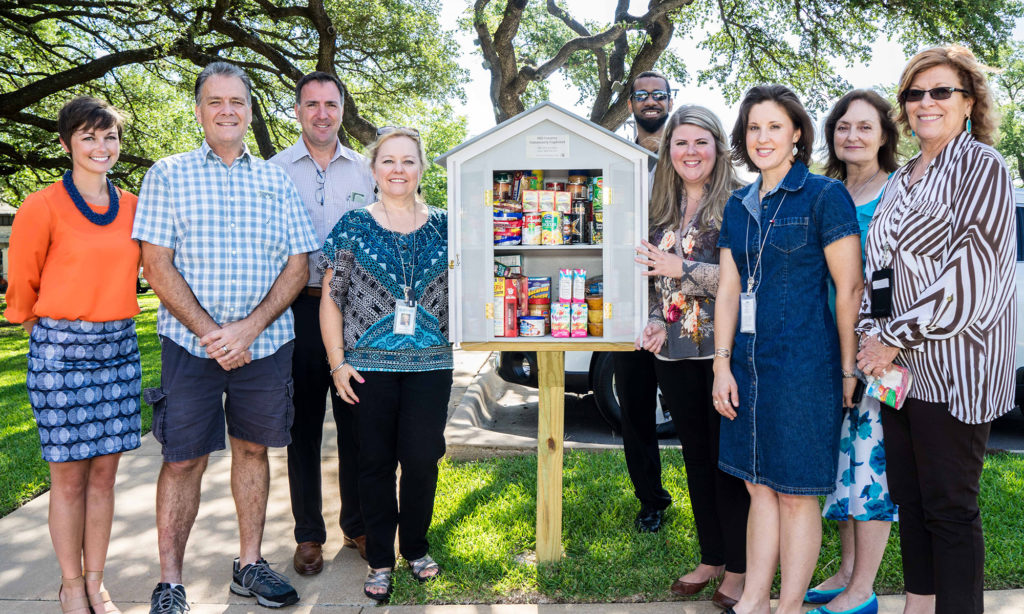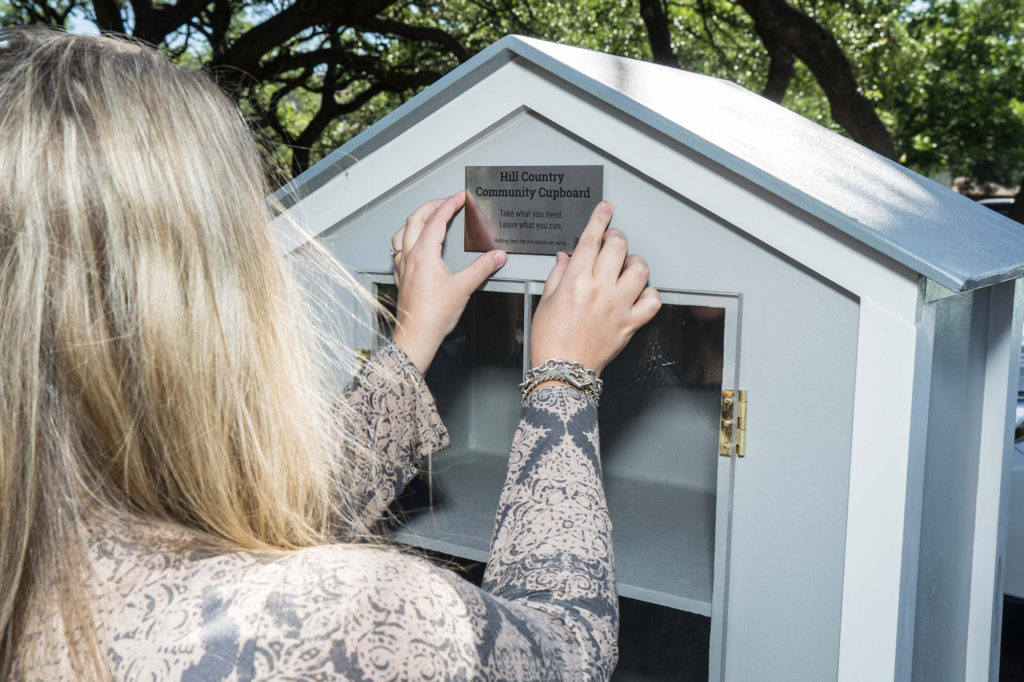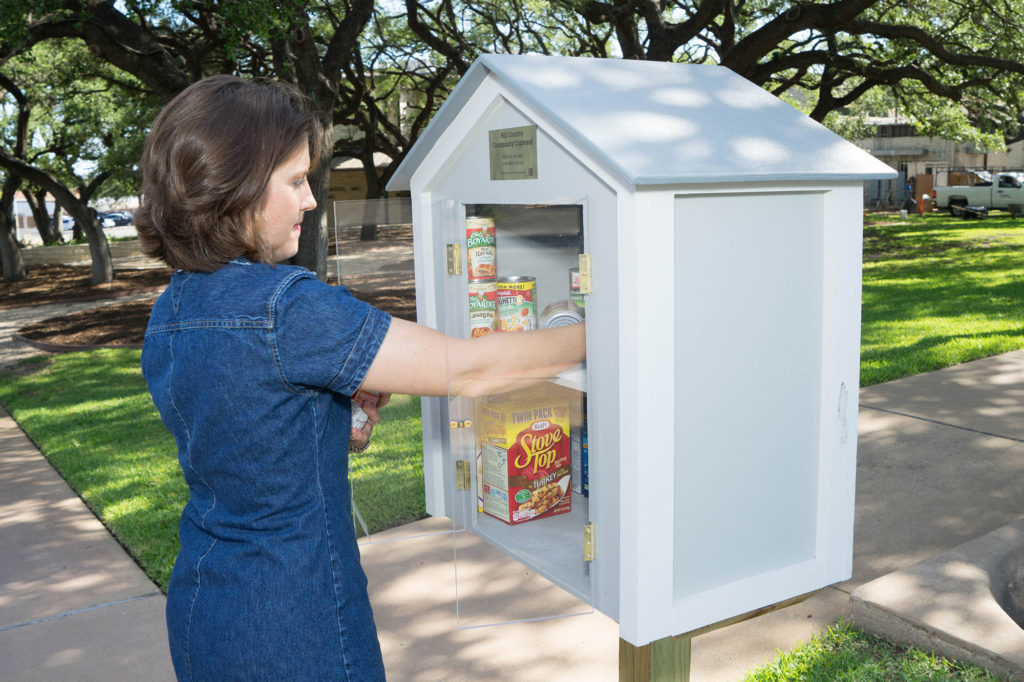
The Little Free Libraries popping up in front yards and communities nationwide can hold more than books, one Texas electric cooperative has discovered. The libraries’ pole-mounted wooden structures make an ideal food pantry.
To help members struggling to feed their families, Pedernales Electric Cooperative installed a box outside its main office this month.
Already, the Hill Country Community Cupboard is a known entity in Johnson City, where the co-op is headquartered.
“So far, the cupboard is off to a great start. Folks are coming by at all hours of the day, mid-morning, lunch and the middle of the afternoon. I’m thankful they feel safe and comfortable coming by any time,” said Caroline Tinsley Porter, media relations specialist at the co-op.
Porter first heard about community pantries on National Public Radio and wondered if the concept would work in the co-op’s vast 8,100 square-mile service area.
She suspected that people went hungry in the co-op’s service area and subsequent research on the problem “solidified my argument.”
“I learned that in central Texas, Hill Country, hunger rates were 2 percent higher than the national average, and nearly 25 percent of kids are hungry,” said Porter.

At the Central Texas Food Bank in Austin, which routinely runs out of food donations, the extra help is welcome, said Paul Gaither, the group’s spokesman.
“Despite distributing 38 million pounds of food in our 21-county service area last year, [we] still fell 30 percent short of meeting the need,” said Gaither. “So all efforts to raise awareness of the issue and help those in need are very welcome.”
A contractor renovating the headquarters building donated materials to build the pantry and later assembled it. Porter envisioned the cupboard to operate like the free libraries: Take what you need and leave what you can.
“It’s an immediate answer to food insecurity,” said Porter. “If it’s Tuesday and you’re getting paid on Friday but you don’t have enough food, the cupboard can help get you through to that next paycheck.”
While co-op employees have embraced the cupboard with a steady stream of donations, “it’s a way for the whole community to get involved with helping out their neighbors,” said Johnson City Mayor Dawn Capra.

“The cupboard serves as a dropping off point for non-perishable foods for people who would like to donate food, but have no other way of doing so,” said Capra.
A local Bible school has designed the cupboard as a “mission” project this summer.
Porter is waiting until the end of the summer to determine whether to replicate the cupboard at nine PEC district offices. After that, who knows? Maybe co-ops in other parts of Texas can get involved, she said.
“I’m learning how to best manage it so that we can replicate that success. I would love for the idea to get around at other co-ops,” said Porter. “After all, our cooperative story is neighbors helping each other and this is another opportunity to do that.”
Victoria A. Rocha is a staff writer at NRECA.